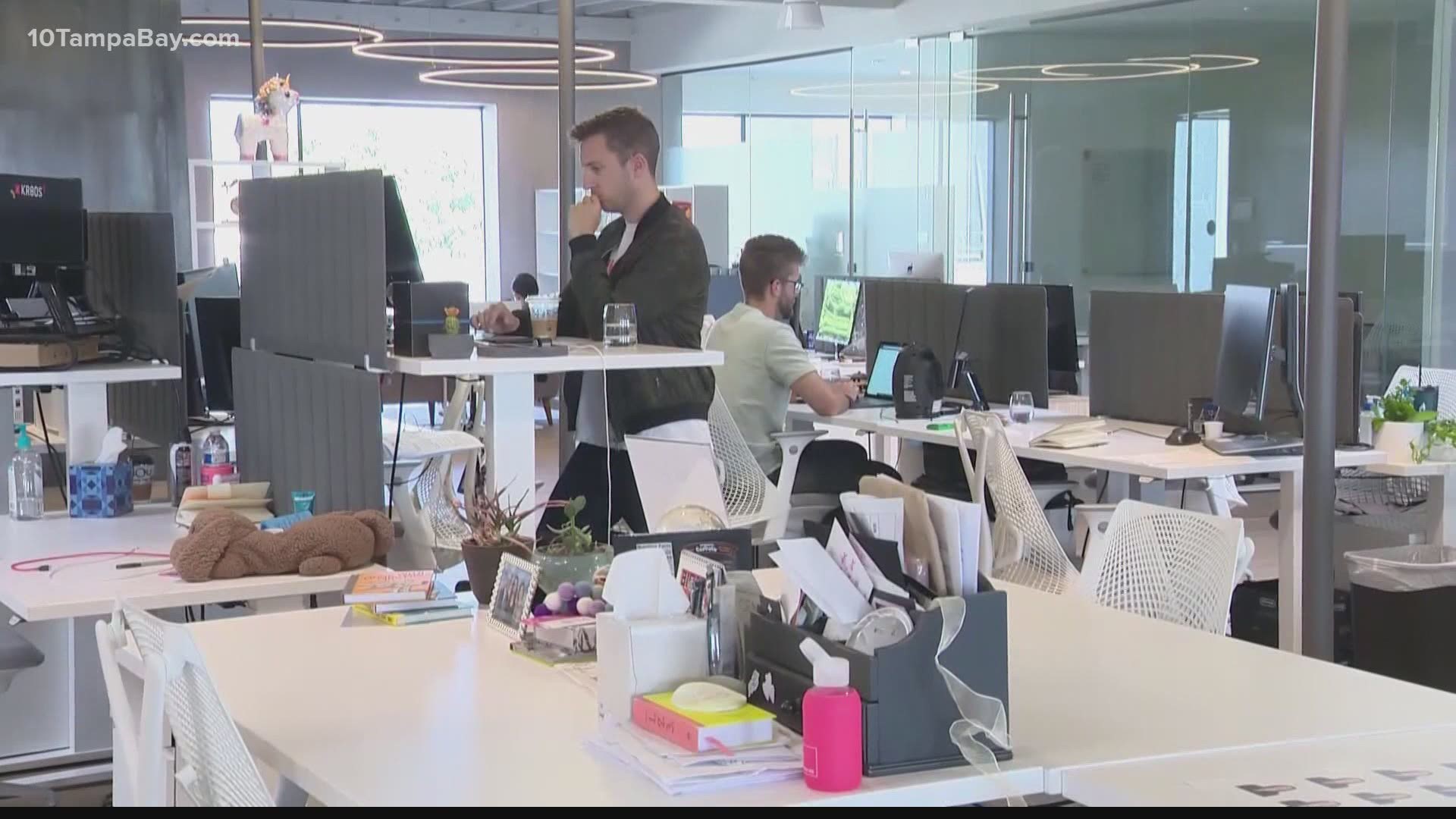TAMPA, Fla. — One of the top-ranked tennis players in the world, Naomi Osaka, made headlines when she withdrew from the French Open. She cited mental health concerns as her reason for leaving the tournament.
The no. 2-ranked, four-time Grand Slam winner chose not to participate in post-game press conferences at the tournament, which she is contractually obligated to attend, after announcing on Twitter before the French Open began that she wouldn't do any press.
Osaka originally cited the general "mental health" of athletes for her decision, writing, "We're often sat there and asked questions that we've been asked multiple times before or asked questions that bring doubt into our minds and I'm not just going to subject myself to people that doubt me."
Other athletes have voiced their support for her decision and fans have rallied behind Osaka's choice to prioritize her mental health.
Osaka's decision has sparked conversations about taking mental health leave from work for many people. 10 Tampa Bay spoke with employment attorney Mitchell Feldman who has more than 20 years of experience in the field. He says there are some important things to consider before taking a leave of absence from your job.
"No matter what you do, you put things in writing to your employer and your HR department. I certainly would not have just oral discussions," explained Feldman. He says you need to have a trail of documentation from your doctor or mental health care provider as well as communications between you and your employer.
He says the first step is seeking the care that you need. If your mental health care provider feels that a leave from work is necessary for your health, they can write a recommendation. From there, communicate with your employer to explore what options may be available to you.
"Most medium to large employers have something written into the handbook, resources and some options for you. They may outline PTO (paid time off) guidelines where you can bank or borrow time or have EAP (employee assistance programs) that can help you," Feldman said.
If the company you work for doesn't have a plan that matches your needs, you can look into the Family Medical Leave Act or FMLA. "It covers employees when they suffer from serious health conditions. These are conditions under which they are unable to perform their job. They require medical documentation," said Feldman.
FMLA is a federal law that allows up to 12 weeks of leave within a 12 month period to care for a newborn child, care for an adoptive placement, care for a spouse, child or parent with a serious health condition, a personal serious health condition or another "qualifying exigency" coming from a family member that's active military. The law covers unpaid time off while preserving health insurance coverage.
If you're struggling with your mental health, here are some resources:
What other people are reading right now:
- FHP: Man hit pedestrian in Weeki Wachee, dumped man's remains at back of bait shop in Spring Hill
- Woman accused of hit-and-run crash at cycling studio arrested, FHP says
- Deadly crash investigation ongoing near Weeki Wachee Springs State Park
- Popular summer vacation spots likely to be crowded and expensive. Here are some travel tips.
- LGBTQ+ advocates question timing after DeSantis vetoes funding for Pulse survivors
- Florida COVID hospitalizations at lowest point in a year
►Breaking news and weather alerts: Get the free 10 Tampa Bay app
►Stay In the Know! Sign up now for the Brightside Blend Newsletter

